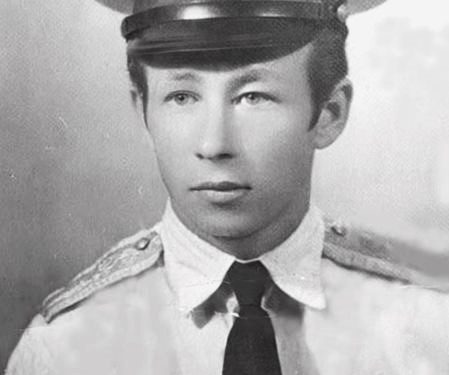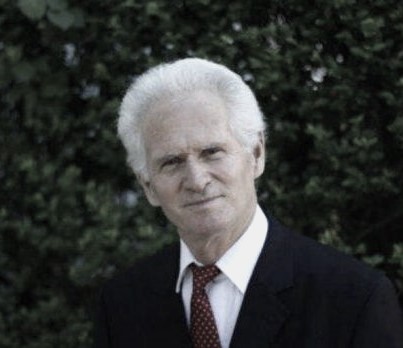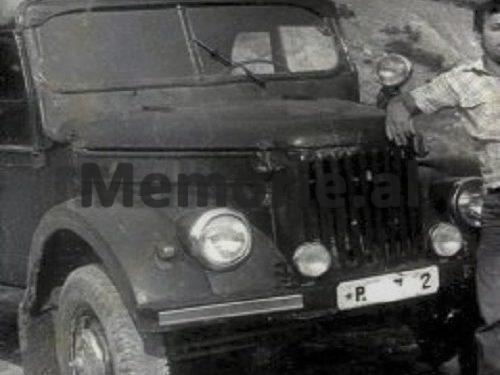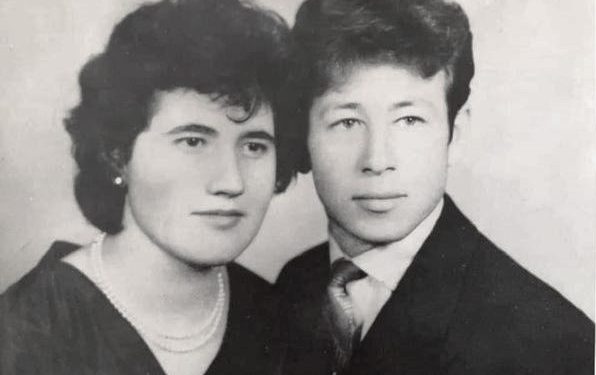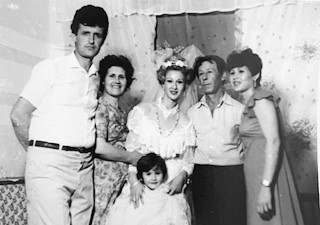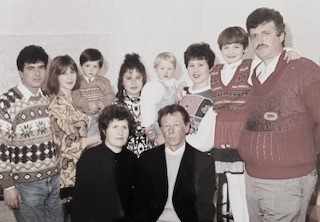Memorie.al / For a long time, I have wanted to write about the Sinica native, Ismail Memelli. This desire arose from his dedication to work and the achievements he had, for his love for Sinica and Albania, as well as for the obstacles and sorrows he endured in life from the past system, which gnawed at his soul but did not defeat him. Ismail was one of the six children of Zylfo and Byle. He was born in Sinica of Devolli in 1938. His childhood was difficult. The country had not yet been liberated from foreign occupiers. He completed primary and seven-year school in his birthplace. He then successfully completed the two-year “Labor Reserves” school and then went to perform his military service at the Pashaliman Naval Military Base.
The Years in the Submarine
In the autumn of 1957, he went for specialization in Sevastopol in the former Soviet Union, where he stayed for several months along with a group of sailors and officers. When he returned to the homeland, he served at the Pashaliman base. As reported by the military man Fahri Perona, originally from Suli of Devolli, who served at that base, Ismail was part of the first personnel for the creation of the Submarine Brigade, stationed in the first submarine, with the duty of commander of the electricians’ group.
He and all the first submarine personnel specialized in Sevastopol of the former Soviet Union for several months. As Fahriu says, the difficulties in the submarine were great, such as: high temperatures during navigation, the presence of hydrogen and carbon dioxide in closed environments, canned food, frequent shifts, high readiness, often three months without going home, etc.
At the Pashaliman base, contradictions with the Soviets became evident. They wanted to take the four submarines but did not achieve their goal and left our country on June 4, 1961. After the Soviets left, there was a need to continue working on the submarines because after 4-5 months, the specialized sailors would be discharged. They were called upon to stay there, and Ismail was among the first to respond.
Due to an incident that occurred at the time, as we will show below, he was transferred from the submarines to the naval ship repair yard. Here, he prepared a group of electricians who, over the years, mastered the repair technology and guaranteed the readiness of the ships of the Albanian Naval War Fleet. In 1964, he married Myrveten, originally from Korça. While he was in Pashaliman, two daughters, Ariana and Albina, were born.
The Calvary of Difficulties that Did Not Defeat Him
As a result of an incident that happened at the time, Ismail suffered. His two brothers, Rasim and Ibrahim, etc., also suffered. After this event, Ismail was transferred for some time to the ship repair unit of the Naval Military Fleet. Knowing that with this “stain” on his biography, he could not continue working in Pashaliman, he requested to leave himself. But where was he to go?! The history of communist persecution followed him. They thought that Ismail might serve the Soviets since he had been in Sevastopol and had worked with them in Pashaliman.
His daughter, Ariana Disha (Memelli), tells me about the ordeal Ismail went through. She told me that the initial order was for internment and confiscation of property. Ismail attempted to start working in Korça, but he worked for a few days and was fired. Nothing escaped the State Security. He started working at the Construction Enterprise in Elbasan, but the same story repeated itself: he worked for two weeks and was fired, as if he had the “plague.” His wife and two daughters lived in Sinica for two years, with Ismail’s parents, making them 11 people, and as is known, poverty was great during the years of the cooperative.
After two years of wandering, finally, the former chairman of the Executive Committee of the Librazhd district, Koci Sinica, originally from this village, helped him, and he started working as an auto-electrician at the Construction Enterprise in this city. Those who knew him closely in Librazhd speak the best words. One of those who spoke to me was the well-known poet Koçi Petriti, who lived in Librazhd for several years and told me: “Ismail was skilled with his hands. Everyone in Librazhd valued him.”
Nevertheless, they would not leave him alone. They provoked him several times to say something so they could arrest him. A spy who worked there provided false information, and the ‘Gaz’ of the Librazhd Internal Affairs Branch had gone two or three times to Ismail’s workplace to arrest him, but he knew how to defend himself. He withdrew into himself and spoke only about work. His close “friend” became tobacco, which he never parted with while he was alive.
His close “companions” also included the guitar. He played it and sang in the family and among his people. Valuing his contribution when he was in Pashaliman, the military men from that base, Aleko Pojani and Fahri Perona, came to Librazhd twice and met Ismail, even though he had a “stain” and was being followed by the State Security.
Ismail in the Other World, the Family in America
After the sad days and years, the wind of change for this family began with the arrival of democracy. Ismail welcomed it and was among the first members of the Democratic Party. He was also elected chairman of the Independent Trade Union that supported the program of this party in Librazhd. A few years passed, and he felt disappointment. Non-idealistic and non-dedicated people, as he had thought, were elected to the trade union and other structures.
In the unfortunate year of 1997, his daughter, Anila, being an excellent student, went to America to study, through the help of an association. Seeing her off at Rinas airport, her father Ismail had told her: “You are going to study, but in addition to your academic results, above all, be a good person. Help your mom and sisters. You might not find me, but don’t be sad and don’t drop out of school to come back.”
The young girl who was happily setting off for studies was surprised by her father’s words: “will you find me”? She asked her father again, but he did not give further explanations. They hugged, and this was their last meeting. The incurable disease had appeared in Ismail’s body, but he had not yet told his family. On April 10, 1997, he passed away and rests in the Librazhd cemetery.
After the 2000s, the other two sisters, Albina and Ariana, also came to America through family reunification, along with their families. They live in Las Vegas and are very well integrated into American life. They maintain ties with Albania and love it with all their heart, as their birthplace is the place where the soul is captivated, despite the great sorrows they experienced from the previous regime. Memorie.al




